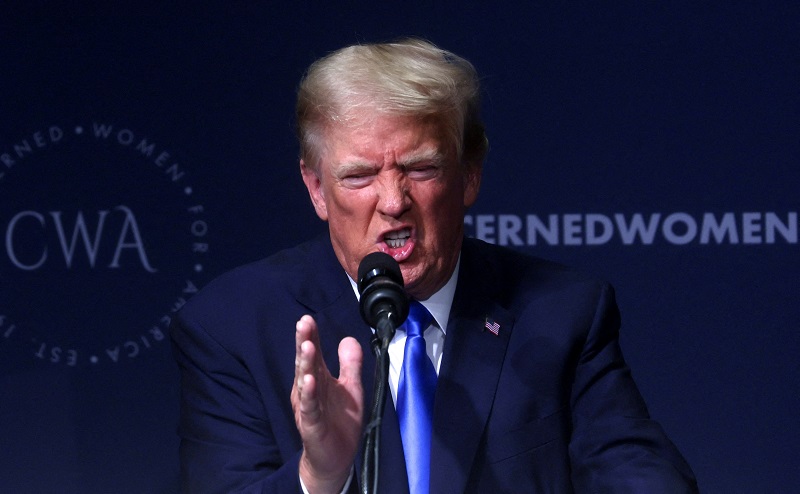President-elect Donald Trump’s ultra-hardline tariff policy is putting both the Korean-American business community and Korean companies on edge.
Following the proposed 60% tariff on imports from China, Trump announced on social media on November 25 that he would sign an executive order on January 20 imposing a 25% tariff on all products coming from Mexico and Canada.
The high tariffs on China are a direct blow to the Korean-American apparel industry, which has a high proportion of production in China. Some are stockpiling, and some companies are considering moving production to other countries.

Some apparel companies are said to have already moved their business partners from China to Vietnam, Indonesia, and Guatemala since the beginning of this year.
“During the first term of the Trump administration, tariffs on clothing were low in China,” said Kevin Kang, chairman of EdgeMine. “We will have to see the actual implementation of tariffs in the second term of the Trump administration.” He added that a lot of companies are moving from China to Vietnam and Indonesia, but they are highly dependent on China for raw materials such as yarn and fabric.
Among Korean-American apparel companies, some are reportedly pre-ordering products to be sold in a few months to a maximum of a year to build up as much inventory as possible.
Companies are preemptively purchasing Chinese products in preparation for the trade war with China because they have experienced the tariff war during Trump’s first term. When the Trump administration imposed a 25% tariff on China in 2018, companies also rushed to stock up on Chinese products before the high tariffs were implemented.
According to CTS, a British container volume tallying agency, demand for container ships was particularly strong in the second quarter.
This was because importers began to secure goods as the introduction of tariffs on China and concerns over the East Coast dock strike added to the mix. The industry views this as the reason why container volume at the Port of Los Angeles and Port of Long Beach saw record growth in July.
As the volume of logistics is rapidly increasing due to the surge in pre-orders from companies, logistics costs are also rising again. Logistics costs, which exceeded $10,000 per container during the pandemic, have gradually stabilized, falling to the $1,000-2,000 range, before rising again this spring to more than $4,000 per container.
“Logistics in the western region has increased by about 10% year-on-year due to the concentration of logistics,” said NGL Transportation CEO Sang-il Roh.
The Korean-American furniture businesses also diversified their production sites from China to Vietnam, Indonesia, and Malaysia over the past six to seven years, as it suffered from a 25% tariff on imports during the previous Trump administration.
“With the accumulation of technology in Chinese production sites over the past 10 to 20 years, many high-end furniture brand products are currently made in China,” said Sean Lee, owner of Ace Furniture.
Mexico and Canada signed a trade agreement (USMCA) with the U.S. in 2020 to eliminate tariffs.
Korean companies have been increasing their presence in Mexico as a major production base for products for export to North America because of its proximity to the U.S., low labor costs, and tariff-free benefits.
According to the Korea Trade-Investment Promotion Agency (KOTRA), the major companies that have entered Mexico include LG Electronics, LS Cable & System, Kia, Lotte Chemical, Samsung Electronics, POSCO International, Hyundai Mobis, Hyundai WIA, and Hyosung, with a total of about 130 companies.
Experts have predicted that “if the USMCA is neutralized by imposing a 25% tariff, Korean companies in Mexico will inevitably take a direct hit.” Manufacturing plants for automobiles and electronic products are concentrated in Mexico.
Kia produces 250,000 cars a year at its Monterrey plant, which was completed in 2016, in Mexico. About 150,000 of these are for export to the U.S.
BY EUNYOUNG LEE, HOONSIK WOO [woo.hoonsik@koreadaily.com]




